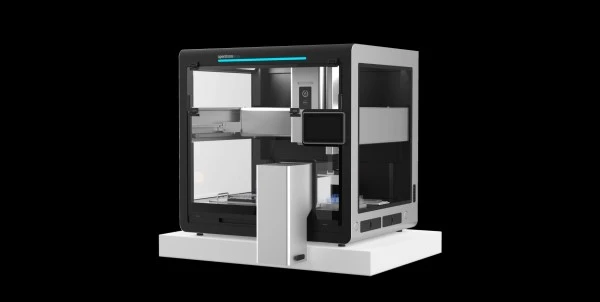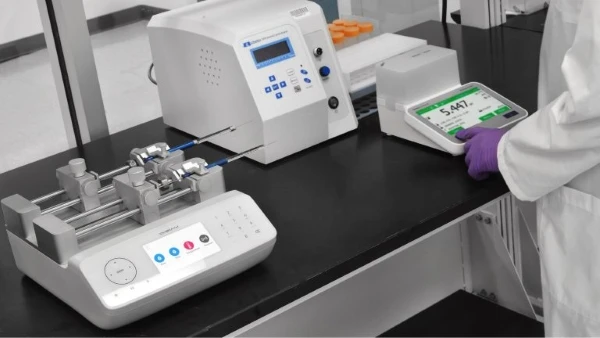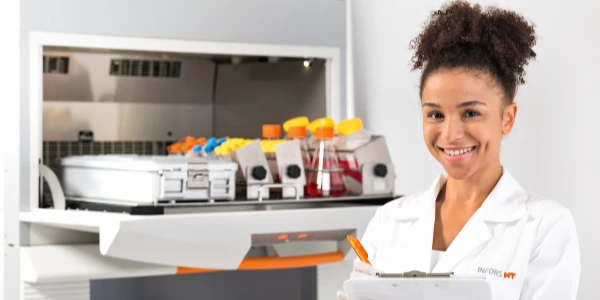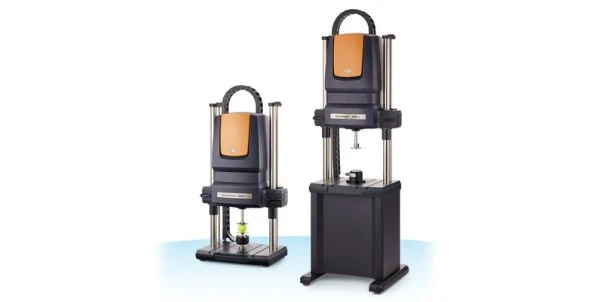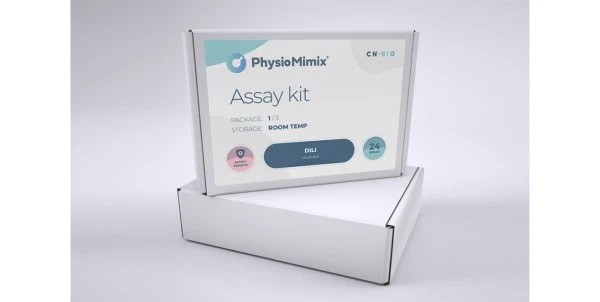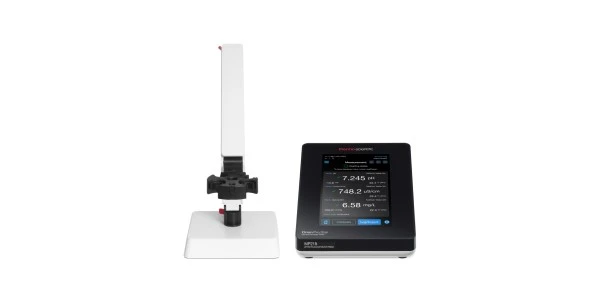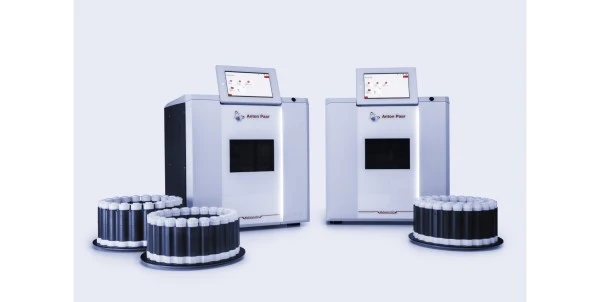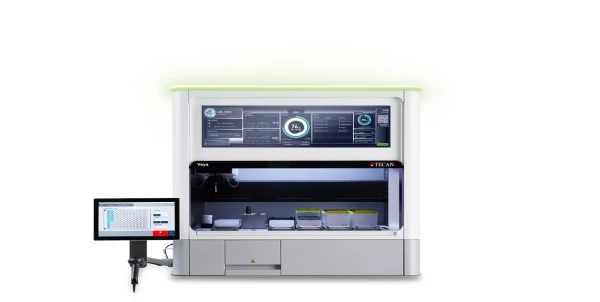
Emerging Trends in Infectious Disease: Interactive Infographic Timeline
Outbreaks such as the COVID-19 coronavirus and other emerging infectious diseases represent both challenges in protection and containment, and opportunities for innovation and technology development.
The Emerging Trends in Infectious Disease Interactive Infographic is a living resource, staying current with diagnostic, protective, and therapeutic developments in the vitally important area.
This post serves as a chronology of the interactive infographic, citing ongoing developments in the areas of: Detection and Containment, Diagnosis and Treatment, Laboratory Equipment, and Prevention and Surveillance.
 Detection and Containment
Detection and Containment
PCR and DNA Technologies
The FDA has fast-tracked Emergency Use Authorization (EUA) of Molecular-Based Laboratory Developed Tests for COVID-19 detection. These are essential tools for research and disease surveillance efforts, and will provide important platforms for future contagion detection kit development.
- 4/24/20 – The FDA has now granted EUA for a total of 18 Laboratory Developed Tests (LDTs) developed by CLIA certified laboratories for use in hospitals and clinics.
- 4/29/20 - A new technology has been developed based on Reverse Transcribed Loop-Mediated Isothermal Amplification (RT-LAMP) for onsi-site detection of SARS-CoV-2 by color change monitoring.
- 5/4/20 - The complete SARS-CoV-2 genome has been cloned into Yeast using Transformation Associated Recombination (TAR).
- 5/6/2020 - The FDA has issued an EUA to Sherlock BioSciences for the Sherlock CRISPR SARS-CoV-2 Kit, the first of its kind employing CRISPR technology for an infectious disease test.
- 5/25/20 - EUA have now been issued for 32 high-complexity Laboratory Developed Tests (LDTs) for CLIA-certified laboratories.
- 6/22/20 - Stilla Technologies has announced it is offering a new high-throughput testing approach for COVID-19, combining digital PCR technology with a group testing method, and published a large comparative study for group testing of SARS-CoV-2 as validation of the approach.
- 6/29/20 - Researchers have developed a portable COVID-19 microfluidics-based PCR diagnostic system – called Epidax – that enables rapid and accurate on-site screening of infectious diseases and significantly reduces the time required to analyse patient samples.
- 8/5/20 - Researchers are developing simpler COVID-19 diagnostic tests for use outside of labs in an effort to make mass testing available, fast and inexpensive. Technologies such as Through-the-envelope diagnostics are based upon reading the electrical frequency of viral RNA samples.
- 9/30/20 - Raybiotech has produced a COVID-19 Rapid Isothermal PCR kit, based on reverse transcription loop-mediated isothermal amplification (RT-LAMP), for the qualitative detection of SARS-CoV-2 virus in human throat swabs. Results are detected by eye (qualitative) or by plate reader (semi-quantitative), without the need for a complex PCR instrument.
- 11/20 - The University of Arizona is examining a new method of COVID-19 test that differs from other saliva-based versions such as the antigen and polymerase chain reaction (or PCR) tests in that it relies on a saltwater rinse and gargle.
- 12/20 - The FDA has issued an emergency use authorization (EUA) for the first COVID-19 diagnostic test for self-testing at home. The Lucira COVID-19 All-In-One Test Kit is a molecular (real-time loop mediated amplification reaction) single use test that offers rapid results.
- 1/21 - A new technology termed "Click Tech Single Strain Mutation Mapping Kit for Sars-Co-V2" developed by baseclick GmbH permits an exact genomic assignment and an assessment of the frequency of newly emerging virus variants -- making it possible to identify all SARS-CoV-2 mutations within a COVID-19 patient, including those that emerge over the course of the disease.
- 3/21 - Thermo Fisher has released the TaqMan SARS-CoV-2 Mutation Panel, a customizable panel of 22 PCR assays that can be used to identify COVID-19 mutations and can deliver results within one hour.
- 5/21 - AppliedDNASciences has reported on the impact of the SARS-Cov 69-70del mutant, seen in the B.1.1.7 Variant and others, on performance of their flagship PCR-based Linea COVID-19 Assay Kit.
- 6/21 - Phoseon, a pioneer in LED technology for life science applications, has entered an agreement with a major provider of SARS-Cov-2 testing for the development of the world's largest UVC LED decontamination facility for RNAse deactivation.
In Vitro Diagnostics
ISO 134485:2016 designated manufacturers of in vitro molecular technologies are now able to produce medical devices and in vitro diagnostics for immediate human pathogen detection. The FDA Emergency Use Authorization (EUA) program is streamlining deployment of commercial diagnostics for clinical use.
- 4/24/20 – The FDA has now approved a total of 40 In Vitro Diagnostics kits based on molecular analysis for commercial use.
- 4/29/20 - The NIH has launched a $1.5 billion Rapid Acceleration of Diagnostics (RADx) initiative to infuse funding into early innovative technologies to speed development of rapid COVID-19 testing and move more advanced diagnostic technologies through the development pipeline toward commercialization.
- 5/25/20 - The FDA has now approved a total of 80 In Vitro Diagnostics kits based on molecular analysis for commercial use.
- 5/22/20 - Nimble Therapeutics is collaborating with Roche Diagnostics to discover and develop novel peptide-based molecules for diagnostics of SARS-CoV-2.
- 6/22/20 - The FDA states there are 153 currently authorized tests under EUAs -- including 129 molecular tests, 23 antibody tests, and 1 antigen test.
- 7/1/20 - The FDA has authorized 157 individual EUAs, which include 132 molecular tests, 24 antibody tests and 1 antigen test.
- 7/20/20 - To-date the FDA has authorized 184 individual EUAs, which include 152 molecular tests, 30 antibody tests and 2 antigen tests.
- 7/27/20 - The FDA has given emergency use authorization to Quest Diagnostics for its SARS-CoV-2 RNA test to be used for pooled sampling.
- 8/18/20 - The FDA has issued EUA for SalivaDirect, a simple and sensitive molecular diagnostic test for SARS-CoV-2 surveillance developed by researchers at Yale University.
- 9/25/20 - To-date the FDA has authorized 254 individual EUAs, which include 203 molecular tests, 47 antibody tests and 4 antigen tests.
- 11/20 - BioReference Laboratories announced the availability of its multiplex test for COVID-19 and influenza A or B that can differentiate the two infections from a single nasal or nasopharyngeal swab specimen.
- 12/20 - To-date the FDA has authorized 287 individual EUAs, which include 223 molecular tests, 57 antibody tests and 7 antigen tests.
- 1/2021 - DiaSorin Molecular LLC is creating a combination diagnostic for differentiating between influenza A/B and COVID-19, with funding, technical assistance, and expertise provided by the Biomedical Advanced Research and Development Authority (BARDA).
- 2/21 - A recent study has reported on the screening of 1,100 point-of-care tests, identifying five direct (antigen/RNA) tests for detection of acute infection and six indirect (antibody) tests for detection of prior infection that meet the World Health Organization (WHO) "desirable" Target Product Profile (TPP) criteria.
- 3/21 - The Next Generation Sequencing-based Variant-Seq SARS-CoV-2 Kit and the PKamp VariantDetect SARS-CoV-2 PCR Assay have been launched by Perkin Elmer.
- 5/21 - A report from researchers in the UK looked at data from ~ one million people with positive coronavirus PCR tests and another 2.5 million others who had come into contact with them. Their simulation suggests that the most sensitive lateral flow rapid tests, although not as sensitive and specific as the PCR gold standard, could have detected nearly 90% of cases that led to an infected contact
Masks and Safety Equipment
The design and accessibility of protective masks and containment equipment provide valuable barriers to infectivity and disease spread. Such equipment continues to be important aspects of first-line public preparedness in the onset of an outbreak.
- 4/24/20 – Through the EUA program, the FDA has now approved 10 ventilators and other medical devices for use in patient care and clinical settings.
- 4/24/20 – The FDA has granted EUA to 10 Personal Protection Equipment (PPE) products including sterilization systems, face-shield, and respirators for emergency use.
- 5/25/20 - Through the EUA program, the FDA has now approved 21 ventilators and other medical devices for use in patient care and clinical settings.
- 5/25/20 - The FDA has granted EUA to 14 Personal Protection Equipment (PPE) products including sterilization systems, face-shield, and respirators for emergency use.
- 7/20/20 - There are now 24 Personal Protection Equipment (PPE) products and 17 ventilators with EUA approval from the FDA.
- 7/8/20 - Experts from Brigham and Women's Hospital and the Massachusetts Institute of Technology (MIT) have developed an alternative to traditional N95 masks, made from sterilizable materials and known as the Injection Molded Autoclavable, Scalable, Conformable (iMASC) system.
- 8/17/20 - The FDA has created a resource to track medical device shortages during the COVID-19 pandemic.
- 9/17/20 - The FDA has developed a laboratory analytical procedure to assess the quality of finished hand sanitizer products using an Agilent 7010B GC-TQ equipped with an 8890 GC.
- 11/20 - A recent study indicated that universal mask use (>95%) could save an additional 129,574 (85,284–170,867) lives from September 22, 2020 through the end of February 2021, or an additional 95,814 (60,731–133,077) lives assuming a lesser adoption of mask wearing (85%), when compared to the reference scenario.
- 8/2021 - Researchers from MIT and Harvard University have developed biosensors that can be placed inside face masks to diagnose COVID-19 in 90 minutes, at accuracy levels similar to those of standard diagnostic tests.
 Diagnosis and Treatment
Diagnosis and Treatment
Serology Analysis and Immunity Tests
The development and deployment of serology and antibody detection kits offer critical measures in tracking infection and immunity. This is especially important in determining the extent of the human immune response following infection and the generation of long-term protective immunity.
- 4/24/20 – Four serological diagnostic kits have received authorization based on IgM, IgG, IgM and IgG, and total antibody analysis.
- 4/27/20 - Seven serology test kits have received emergency use authorization, although the FDA has begun to investigate unvalidated or suboptimal kits on the market.
- 5/2/2020 - The FDA has created a new policy pathway to support the emergency authorization of tests for SARS-CoV-2 antibodies.
- 5/22/20 - The FDA has released a list of antibody tests that no longer meet criteria for EMU under the new policy pathway.
- 5/28/20 - Two published studies now show that monkeys infected with COVID-19 develop immunity, a positive sign for vaccines.
- 5/28/20 - A recent study showed an antibody first identified in a blood sample from a patient who recovered from Severe Acute Respiratory Syndrome in 2003 inhibits related coronaviruses, including the cause of COVID-19.
- 6/26/20 - The FDA has updated the templates for laboratories and commercial manufacturers to help facilitate submission of Emergency Use Authorization (EUA) requests for serology tests.
- 7/20/20 - The Biomedical Advanced Research and Development Authority (BARDA) has given $629,595 to MBio Diagnostics to aid in the development and commercialization of its COVID-19 antibody panel that can deliver results within 5 minutes and can be used in walk-up or drive-through testing sites.
- 8/17/20 - To-date the FDA has authorized 213 individual EUAs, which include 174 molecular tests, 37 antibody tests and 2 antigen tests.
- 9/30/20 - The FDA has authorized the first point-of-care (POC) antibody test for COVID-19. The Assure COVID-19 IgG/IgM rapid test device was first authorized for emergency use by certain labs in July 2020 to help identify individuals with antibodies to SARS-CoV-2, indicating recent or prior COVID-19 infection.
- 11/20 - A new assay that detects the unique SARS-CoV-2 orf8 protein in the sera of COVID-19 patients in the early stage of the infection may be a key development in controlling the COVID-19 pandemic, according to recent research.
- 2/2021 - Ray Biotech has a large variety of COVID-19 patient blood samples for laboratory and clinical analysis and therapeutic development.
- 5/21 - Eli Lilly's AbCellera antibody treatment shows potency against all current COVID-19 variants.
- 6/21 - A recent paper reports the development of a microfluidics semiconductor-based sensor technology that can deliver positive quantitation SARS-CoV-2 antigen detection in seconds.
- 8/21 - The AACC, together with laboratory professionals, has released a document on the clinical recommendations and interpretation of emergency-use authorization and laboratory developed test serologic testing for COVID-19. This document will serve as a reference "to appropriately implement these assays in the clinical laboratory and interpret the results to serve their patient needs during this pandemic".
Therapeutic Development
Companies are focusing on coronavirus therapeutic development using a variety of approaches including: monoclonal antibodies directed towards virus antigens, small molecule virus receptor inhibitors, repurposed anti-HIV and Influenza drugs, and more.
- 4/24/20 – There are currently a total of 155 drugs under development for treating COVID-19, many of which have been previously approved for other viral infections – an indication they are safe for human use.
- 4/29/20 - A NIH clinical trial shows Remdesivir accelerates recovery from advanced COVID-19.
- 5/1/20 - The structural basis for Remdesivir mode of action in humans has been resolved.
- 5/14/20 – The NIH begins clinical trials of hydroxychloroquine and azithromycin to treat COVID-19.
- 5/15/20 - According to the World Health Organization and ClinicalTrials.gov, there are currently 1,114 ongoing clinical studies of treatments for COVID-19.
- 5/22/20 – The FDA has issued new actions to accelerate development of novel prevention, treatment options for COVID-19.
- 6/22/20 - Lab Corps subsidiary Covance has launched COVID-19 Clinical Trial Connect in the U.S., an online screening survey which matches afflicted patients with COVID-19 research studies or clinical trials.
- 6/22/20 - The NIH has launched an analytics platform, called the National COVID Cohort Collaborative (N3C), to harness nationwide COVID-19 patient data to speed treatments
- 6/22/20 - "Effect of Dexamethasone in Hospitalized Patients with COVID-19: Preliminary Report" has been published on MedRxiv describing the effectiveness of the steroid for treatment of COVID-19.
- 7/1/20 - Merck announced a clinical trial for M5049, a potentially first-in-class small molecule that blocks the activation of Toll-like receptor (TLR)7 and TLR8, two innate immune sensors that detect single-stranded (ss) RNA from viruses such as SARS-CoV-2. The treatment is intended towards COVID-19 pneumonia in severe patients.
- 7/2/2020 - Computer-based tools are helping researchers find potentially promising candidates for vaccines and treatments for SARS-CoV-2 -- and much more quickly than traditional approaches.
- 7/7/20 - Regeneron has entered phase III clinical trials for a fully-humanized antibody cocktail REGN-COV2, containing two antibodies bind non-competitively to the receptor binding domain of the virus’s spike (S) protein. This decreases the ability of mutant viruses to avoid treatment and protects against spike variants that have evolved in the human population.
- 8/13/20 - Researchers at the University of California, Riverside (UCR) leveraged machine learning to screen more than 10 million commercially available small molecules for interactions with SARS-CoV-2 viral proteins, and found hundreds of drugs that might offer treatments against COVID-19.
- 9/30/20 - An investigational antibody cocktail by Regeneron Pharmaceuticals reduced the viral loads and improved the systems of nonhospitalized COVID-19 patients, according to data from its phase I/II/III trial.
- 11/20 - Gillead's Veklury® (remdesivir) won FDA approval as the first drug against the SARS-CoV-2 virus.
- 12/20 - The FDA has issued its first emergency use authorization for a COVID-19 antibody treatment. Bamlanivimab from Eli Lilly, uses artificially engineered antibodies based on those isolated from people who have recovered from the disease, or convalenscent patients.
- 5/21 - NIH’s Accelerating COVID-19 Therapeutic Interventions and Vaccines (ACTIV), a public-private partnership for speeding development of the most promising treatments and vaccine candidates, has launched Phase 2/3 trials for the novel fully human poly-clonal antibody therapeutic SAB-185, co-developed with SAB Biotherapeutics.
- 8/21 - In the wake of FDA Emergency Use Authorization for the novel antibody sotrovimab in May 2021, companies are designing next-generation antibodies modeled on those taken from unique individuals whose immune systems can neutralize any COVID-19 variant.
Vaccine Research Tools
Subunit vaccines can now be developed quickly due to advances in synthetic gene design. Isolation and use of antigen-presenting viral genes and peptides avoids the needs for handling live viruses and the associated safety hazards in vaccine development.
- 4/24/20 – A total of 79 vaccine candidates are under development with at least five in Phase 1 clinical testing.
- 4/24/20 – The NIH has announced the launch of Accelerating COVID-19 Therapeutic Interventions and Vaccines (ACTIV), a public/private partnership between government, industry, and non-profit groups to speed COVID-19 vaccine and treatment options.
- 4/24/20 – The Coalition for Epidemic Preparedness Innovations (CEPI) and the Biomedical Advanced Research and Development Authority (BARDA) are funding numerous advanced vaccine technologies, several already in human trials.
- 4/24/20 – Moderna, developer of a novel mRNA nanoparticle vaccine and the first to enter clinical testing in humans, has reached a milestone and is moving into the second round of dosing.
- 4/29/20 - There are over 90 vaccines in development and six currently in patient clinical trials
- 5/1/20 - There are now 102 vaccines in development, eight in clinical trials, and two that have shown protection against SARS-CoV-2 in non-human primates.
- 5/7/20 - Moderna has received FDA clearance to advance its COVID-19 vaccine candidate mRNA-1273 into a Phase II trial.
- 5/28/20 - AstraZeneca has partnered with the University of Oxford’s COVID-19 vaccine efforts and announced that the U.S. Biomedical Advanced Research and Development Authority (BARDA) has paid more than $1 billion to support the development, production and delivery of the vaccine.
- 6/29/20 - There are now 16 vaccines in clinical trials and 132 in various stages of development.
- 7/1/20 - LabCorp has launched a new test designed to assess the capacity of antibodies in plasma to inhibit the SARS-CoV-2 virus. It says the assay can be used in the development of a COVID-19 vaccine and in screening convalescent plasma for prophylactic and therapeutic use.
- 7/1/20 - The U.S. Food and Drug Administration (FDA) has provided new regulatory guidance for developers of vaccines for COVID-19. The guidance lays out the agency's current recommendations regarding the data needed to facilitate clinical development and licensure of vaccines to prevent COVID-19.
- 7/27/20 - A Phase 3 clinical trial to evaluate the investigational vaccine developed by Moderna (mRNA-1273) has begun.
- 8/10/20 - Two Phase 3, randomized, placebo-controlled, double-blind clinical trials testing whether experimental monoclonal antibodies (mAbs) can prevent infection by SARS-CoV-2 coronavirus are now enrolling healthy adults at clinical trial sites in the United States.
- 9/30/20 - Moderna and clinical partners published a second interim analysis of data in The New England Journal of Medicine (NEJM) from the open-label Phase I trial (NCT04283461) of its mRNA-1273 that is being conducted by the NIH’s National Institute of Allergy and Infectious Diseases (NIAID). Immune responses were dose-dependent with respect to generation of binding and neutralizing antibody titers, supporting the selection of the 100 µg dose for further study in Moderna’s Phase III COVE trial (NCT04470427).
- 11/20 - A recent study in Cell describes a novel nanoparticle vaccine candidate that produces virus-neutralizing antibodies in mice at levels ten-times greater than is seen in people who have recovered from COVID-19 infections. The vaccine candidate has been transferred to two companies for clinical development.
- 12/20 - Moderna plans to apply for Emergency Use Approval (EUA) from the FDA for it's mRNA vaccine -- which if approved could be available by the end of 2020.
- 1/2021 - Gritstone and the National Institute of Allergy and Infectious Diseases (NIAID) have announced a clinical trial agreement to initiate clinical testing of a second generation vaccine against SARS-CoV-2, with potential for both prolonged protection and potency against spike mutants.
- 2/21 - Novovax has produced a novel nanoparticle vaccine and is completing phase III clinical trials. The company has signed a deal with Gavi, the Vaccine Alliance, for 1.1 B doses, to be manufactured by Novovax and the serum institute of India (SII).
- 5/21 - The world has reached the major milestone of 1 billion COVID-19 vaccinations -- 4 months after vaccine rollout and just over a year since vaccine trials in humans began.
 Laboratory Equipment
Laboratory Equipment
Mobile Lab Supplies
Remote point of care diagnostic kits and equipment are addressing the need for rapid testing and hospitals and clinics. Swabs, testing reagents, gowns, and personal protective equipment are all necessary for remote care.
- 4/24/20 – The development of mask disinfection devices aims to extend the life of key protective equipment, such as N-95 masks, particularly in areas in which personal protective equipment (PPE) is vitally needed for healthcare workers and essential employees.
- 4/26/20 - Studies have identified that saliva samples offer high sensitivity than traditional nasal swabs for detection of SARS-CoV-2 by RT-PCR.
- 5/8/20 - The FDA has approved the first at-home saliva collection test for coronavirus.
- 5/15/20 – Ionican PTR-TOF instruments for VOC detection by mass spectrometry are being evaluated for testing COVID-19 in breath.
- 5/28/20 - The FDA has now granted 15 EUA approvals for personal protective equipment to assist in medical care and remote triage.
- 5/28/20 - EUAs for 22 ventilators and other medical assist devices have now been granted.
- 6/22/20 - The FDA has announced a new resource, Testing Supply Substitution Strategies, that contains details to help support labs performing authorized COVID-19 test.
- 6/22/20 - The FDA has issued a EUA for the Fitbit Flow, an emergency resuscitator, design for use in treating COVID-19 patients as a continuous respiratory support system that includes an FDA-cleared Manual Resuscitator.
- 9/30/20 - Jurata Thin Film technology allows biologics and vaccines to be packaged, shipped, and stored at room temperature for extended periods of time. MSI-TX Thin Film enables up to 500 doses of a vaccine to be placed on a single wafer-thin 8.5 by 11-inch sheet of film, weighing just one hundredth of a pound.
- 11/20 - Promega now offers the Lumit™ Dx SARS-CoV-2 Immunoassay -- an IVD test designed to qualitatively detect antibodies to SARS-CoV-2 in serum or plasma using a bioluminescent method, providing clinical labs with a simple, scalable workflow that is easily adapted to automation.
- 1/2021 - Lexogene has created MiQLab, a PCR-based system coupled with microfluidics in which nasal swab sample are collected into a MiQLab cassette and interfaced with a the touch screen monitor to initiate sample processing. The process is rapid and scaleble, designed to reach the 193,000 CLIA-certified labs in hospitals and clinics throughout the U.S.
- 2/21 - Applied DNA Sciences, a leader in PCR-based DNA reagent manufacturing has agreed to supply on-site testing of students, faculty, and staff at LIM College using it's pooled DNA surveillance testing program safeCircle.
- 3/21 - The FDA has authorized the empowerDX COVID-19 Home Collection Kit which can detect nucleic acid from the SARS-CoV-2 virus in both symptomatic and asymptomatic patients, using a nasal swab for shallow sample collection. The at-home without-a-prescription kit is the first SARS-CoV-2 testing product available from Amazon mail service.
- 5/21 - In a recent paper, researchers describe a small, portable device that can screen 96 samples at the same time using the RPA assay. They call the method NIRVANA, for "nanopore sequencing of isothermal rapid viral amplification for near real-time analysis."
Virology Lab Equipment
Research-grade PCR, RT-PCR, light and electron microsopes, microscopes accessories, sample preparation equipment and reagents, fume hoods, and more are necessities for laboratories engaged in basic virology research.
- 4/24/20 – Cutting-edge instrumentation and innovative technologies have led the way in solving the structures of key SARS-CoV-2 virus proteins, integral to novel therapeutic and vaccine development efforts.
- 5/28/20 - New targeted next-generation sequencing (NGS) technology enables a streamlined research workflow for complete viral genome sequencing and variant detection for epidemiological studies of SARS-CoV-2.
- 6/22/20 - Novel microarray technology now enables enhanced viral testing capabilities, with rapid multiplexing and high sensitivity and specificity for SARS-CoV-2 (COVID-19) detection from standard specimen collection deives.
- 7/27/20 - Providers of SARS-CoV-2 testing and research equipment are taking initiatives such as live streaming delivery turnaround times, in order to better serve the research community.
- 9/22/20 - New technologies are emerging to ensure the cold chain network from manufacturer to therapeutic and vaccine trial site has the right supplies, in ample quantities, with the ability to adapt quickly to changes in vaccines’ thermal requirements and site locations.
- 11/20 - RayBiotech now offers SARS-CoV-2 Spike-ACE2 neutralization assays as well as SARS psuedovirus constructs for determing drug candidate activity in vitro and in cell culture, respectively.
- 1/2021 - Hamilton Storage has formed a partnership with start-up company Rhinostics joining Hamilton Storage’s LabElite® DeCapper with the RHINOstic™ swab collection device for hands-free and high-throughput sample processing in COVID-19 and infectious disease testing workflows.
- 2/21 - R&D Systems offers a range of SARS-CoV-2 proteins and other Coronavirus proteins, tested to exhibit high affinity binding to human ACE-2 in both ELISA and SPR. R&D Systems is also quickly developing new SARS-CoV-2 protein mutants as they are identified, provided on a custom ordered basis.
Pathogen Biosafety Tools
Handling pathogens in clinical and research settings requires the appropriate protective gear: including face shields, masks, respirators, clean suits, fume hoods, gloves, and depending on the level of security, biosafety containment equipment.
- 4/24/20 – Companies have stepped up production and availability of laminar flow workstations, microscope enclosures, and other containment devices fitted with air filtration and sterilization measures required for pathogen handling.
- 4/24/20 – The CDC has posted interim guidelines for laboratories including resources for: Sample collection and handling, real-time RT-PCR, and biosafety practices.
- 5/28/20 - The FDA issued new guidance and updated guidance to address potential shortages of face masks, surgical masks, respirators and face shields during the COVID-19 pandemic.
- 9/15/20 - The National Institutes of Health has awarded seven contracts to companies and academic institutions to develop digital health solutions that help address the COVID-19 pandemic. The work could lead to user-friendly tools such as smartphone apps, wearable devices, and software that can identify and trace contacts of infected individuals, keep track of verified COVID-19 test results, and monitor the health status of infected and potentially infected individuals.
- 11/20 - The FDA has issued new guidance to “help expand access to certain FDA-cleared molecular assays intended for detection and identification of influenza (flu) viruses, including those molecular influenza assays that also detect and identify respiratory syncytial viruses (RSV), during the influenza season and for the duration of the COVID-19 public health emergency.”
 Prevention and Surveillance
Prevention and Surveillance
Awareness Initiatives
Proper protective measures include: knowledge of virus reservoirs, early warning signs, and awareness of the most susceptible which in the case of COVID-19 include: older individuals with sepsis and chronic diseases such as hypertension, diabetes, and blood clotting disorders.
- 4/24/20 – The COVID-19 outbreak has shown that collaboration between scientists and the use of international networks are requirements for early detection and rates of disease progression.
- 4/24/20 – A new strategic plan from the National Institute of Allergy and Infectious Diseases (NIAID), part of the National Institutes of Health, details the institute’s plan for accelerating research to diagnose, prevent and treat COVID-19.
- 5/28/20 - Researchers at Mount Sinai have developed a platform that uses artificial intelligence (AI) combined with imaging, and clinical data to analyze patients with COVID-19.
- 6/22/20 - Wastewater testing gains traction as a Covid-19 early warning system, including tests for the presence of the coronavirus’s genes which can identify cases in a given community at least a week before people start becoming sick.
- 7/27/20 - The use of "Adaptive clinical trials" allow researchers to simultaneously test multiple interventions against a single, shared control arm, add and eliminate treatments as the trial progresses, and update the study design as the treatment landscape changes.
- 7/27/20 - Researchers have complied hundreds of lung scans from clinical reports published around the world, and are testing the ability of AI systems to aid COVID-19 diagnosis.
- 8/20/20 - A recent Fitbit COVID-19 Study suggests wearable devices can detect disease before symptoms appear.
- 9/22/20 - The digital health company Congenica has launched a new module for its genomics analysis platform that will accelerate research into the relationship between an individual's genomic variation and COVID-19 susceptibility, severity, and clinical outcomes. Such technology may be an intregral part of future disease identification and analysis.
- 11/20 - A large-scale trial has shown that ‘pooled’ testing for SARS-CoV-2 — where samples from multiple people are combined into one batch that is then analysed for the virus — can be highly efficient, even more so than theory predicted.
- 1/2021 - A recent study titled "A smartphone-read ultrasensitive and quantitative saliva test for COVID-19" describes the development of a portable, ultrasensitive saliva-based COVID-19 assay with a 15-min sample-to-answer time that does not require RNA isolation. The technology uses CRISPR-Cas12a activity to enhance viral amplicon signal, which is stimulated by the laser diode of a smartphone-based fluorescence microscope device.
- 3/21 - A recent study describes a Covid-19 breath test, in which SARS-CoV-2 spike protein antigens are detected directly, rather than other breath tests that detect virus proteins. The work is published in ACS Omega, titled "Optical Detection of CoV-SARS-2 Viral Proteins to Sub-Picomolar Concentrations".
- 5/21 - The National Institutes of Health, the industry-backed coalition called COVID R&D Alliance, and other research groups aim to ensure an antiviral arsenal is prepared for future outbreaks and pandemics.
Surveillance Devices
Increased disease surveillance through optimized real-time network communications will help identify initial outbreaks, and inform early responders to enact containment, social distancing, diagnostics, and treatment protocols.
- 4/24/20 – Modelling COVID-19 disease spread has been a challenge for epidemiologists, as the data and accuracy of infection reporting has been unreliable. Efforts are focused on improving the data collection process so future projections can be more accurate and informative.
- 5/4/20 - Researchers have developed a wearable device that can detect early signs and symptoms of coronavirus.
- 5/28/20 - ProMIS Neurosciences has received a Digital Technology Supercluster award from the Government of Canada for $1.8 million (CAN) for their project, “Predicting the evolution of COVID-19.”
- 6/22/20 - A new clinical trial plans to assess a rapid breath test for COVID-19 to deliver results on-site in less than five minutes, with the advantages of being non-invasive, easy to use, and good temporary indicator before a confirmatory PCR test.
- 7/20/20 - In a recent study, researchers modelled the effect of widespread testing on viral spread in a large group of people. Results showed that weekly surveillance testing, paired with isolation of infected people, would limit an outbreak even if the testing method was less sensitive than the gold-standard type of test, quantitative polymerase chain reaction (qPCR).
- 7/27/20 - Researchers have devised a test that can determine novel coronavirus infection in about 20 minutes in blood, with potential applications including rapid case identification, contact tracing to limit viral spread, and population screening to determine the extent of viral infection across communities.
- 7/27/20 - A new online resource has identified 15 essential indicators, and evaluated COVID-19 data dashboards for all 50 states and the District of Columbia.
- 8/19/20 - The FDA has updated its COVID-19 Resources for Health Professionals page to include the CURE ID app, which allows clinicians to quickly and easily share their experiences treating COVID-19 patients and patients with other difficult-to-treat infectious diseases.
- 9/22/20 - DetectaChem, a leader in innovative portable threat detection solutions, announced that their MD-Bio (MobileDetect Bio) BCP19 Test Pouch for COVID-19 detection is currently advancing quickly through Phase 1 of the NIH (National Institutes of Health) RADxSM (Rapid Acceleration of Diagnostics) Tech initiative. The RADxSM initiative was created to rapidly accelerate innovation in the development, commercialization, implementation and mass deployment of surveillance technologies for COVID-19 testing.
- 11/2020 - Researchers at Massachusetts Institute of Technology (MIT) developed an artificial intelligence (AI) model able to detect asymptomatic COVID-19 cases by identifying differences in the sounds of coughs between healthy and infected people.
- 12/20 - Fluidigm and Healthvana have partnered to offer COVID-19 test results delivery through and innovative digital platform, where patients receive results, education and next steps on their mobile phones. The partnership involves the Fluidigm® saliva-based Advanta™ Dx SARS-CoV-2 RT-PCR Assay and Healthvana's mobile platform, which serves as the largest patient communication platform for COVID-19 and HIV in the U.S.
- 1/2021 - Massachusetts Institute of Technology (MIT) researchers have described in the journal SCIENCE natural language processing methods lifted from the field of computational linguistics used to analyze the viral protein sequence data of influenza A, HIV, and SARS-CoV-2. The technology is meant to identify regions within the genomes of those viruses that are most vulnerable to mutation.
- 2/21 - A new initiative, The Global Immunological Observatory, in development is a serological monitoring system that would look search for the presence of antibodies to the hundreds of known human pathogenic viruses, spotting any infections that rise above baseline.
- 5/21 - IDbyDNA has pioneereed a metagenomic approach to viral strain identification, which combines very sensitive detection with next-gen sequencing to identify emerging and mutant viruses much sooner than either genomic or surveillance methods alone -- meant to future-proof laboratories for the next health care crisis.
- 6/21 - Analytik Jena has completed the first of it's kind wastewater screening for SARS-Cov-2 in Japan using its QTOWER3 RT-PCR system.
Preparation Protocols
Understanding risks and actions tied to outbreaks will allow strict avoidance and legal parameters to be defined, thereby limiting the chances for contagions to infect and spread through the population. Medical preparedness and prophylaxis will be essential for these goals.
- 4/24/20 – Preparedness is a top priority that includes no only outbreak detection and surveillance, but stockpiles of PPE, medical care infrastructure, and predictive modelling technologies to stay ahead of the infection progression.
- 5/13/20 – A recent study reviewed measures government ought to implement in order to prevent future outbreaks, including technologies designed for mass testing, contract tracing, and case isolation.
- 5/19/20 - The CDC has updated "Interim U.S. Guidance for Risk Assessment and Work Restrictions for Healthcare Personnel with Potential Exposure to COVID-19"
- 6/22/20 - The FDA and the European Medicines Agency (EMA), has provided procedural assistance to sponsors and applicants anticipating to submit pediatric product development plans for the treatment and prevention of COVID-19.
- 8/4/20 - Health tech companies and researchers are developing wearables and apps as a cutting-edge way to catch new cases and detect when patient infections progress.
- 9/23/20 - A new, first-of-its kind report, A National Decision Point: Effective Testing and Screening for Covid-19, provides a framework for public health officials and community leaders in schools, businesses and other institutions on how to use Covid-19 screening test strategies to operate safely and prevent further spread of the virus.
- 11/20 - Oxford Biodynamics is partnering with Oregon Health Sciences University (OHSU) in testing the new EpiSwitch COVID-19 disease severity test program, aimed at forecasting individuals’ risks of severe disease progression in advance, to inform risk mitigation decisions and help optimize acute and long-term treatment.
- 12/20 - The new COVID-19 Event Risk Assessment Planning Tool s a website dedicated to providing interactive context to assess the risk that one or more individuals infected with COVID-19 are present in an event of various sizes.
- 1/2021 - Several new apps provide statistical analysis solutions to predict the chances of being exposed to COVID-19 depending on where a person is and what activities they are engaged in.
- 5/21 - The CDC, in collaboration with the NIH, has launched a community health initiative called “Say Yes! COVID Test”, where 160,000 residents will have access to free, rapid antigen tests (provided by the NIH) that they can administer themselves three times a week for one month. The initiative aims to determine if frequent self-administered COVID-19 testing helps residents reduce community transmission of SARS-CoV-2.
